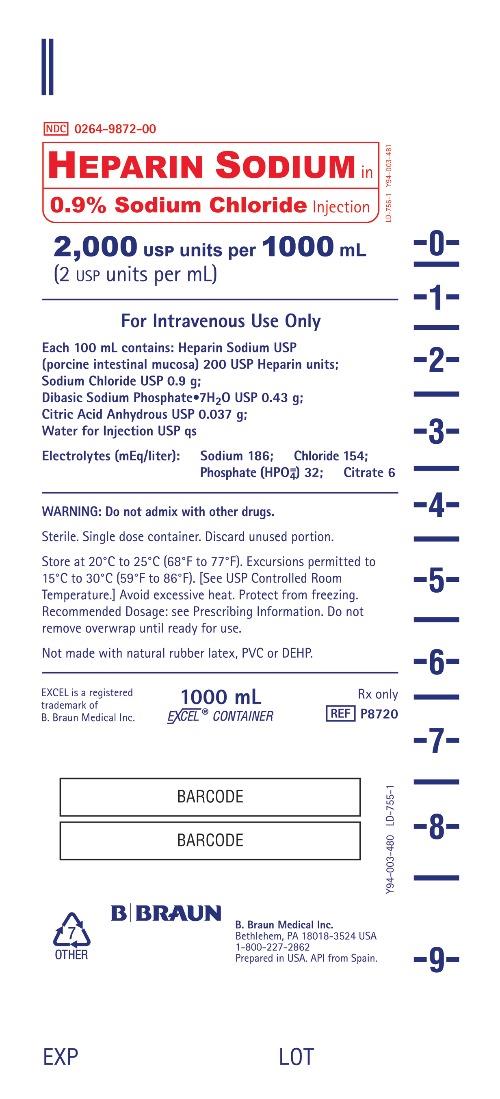Heparin Sodium In Sodium Chloride Injection while Breastfeeding

What is Heparin Sodium In Sodium Chloride Injection used for?
I am currently breastfeeding and I want to know if using Heparin Sodium In Sodium Chloride Injection is safe for my kid? Does it have any effect on milk production?

Heparin Sodium In Sodium Chloride Injection Breastfeeding Analsys
Heparin while Breastfeeding
SafeCAS Number: 9005-49-6
The high molecular weight of both standard or non-fractionated Heparin, and, so-called low molecular weight Heparin makes excretion into breast milk extremely difficult. Dalteparin has been shown not to be excreted into breast milk . In addition, Heparins are inactivated in the GE tract where they are not absorbed which is reason to have a nil oral bioavailability. Absence of anti-clotting activity in breastfed infants has been shown after treatment of the mother with Enoxaparin. Risk of Heparin-induced Thrombocytopenia or Osteoporosis in the mother is lower with low weight Heparins. Eleventh WHO Model List of Essential Drugs 2002: Compatible with breastfeeding.
Heparin Sodium In Sodium Chloride Injection Breastfeeding Analsys - 2
Heparin while Breastfeeding
CAS Number: 9005-49-6
Although heparin itself has not been studied, low molecular weight heparins (e.g., dalteparin, enoxaparin) are not excreted into breastmilk in clinically relevant amounts. Because heparin has an even higher molecular weight of 3000 to 30,000 daltons, it would not be expected to be appreciably excreted into breastmilk or absorbed by the infant. No special precautions are required.[1]

What should I do if I am breastfeeding mother and I am already exposed to Heparin Sodium In Sodium Chloride Injection?
It is always a good idea to keep your healthcare provider or doctor informed about your drug usage during pregnancy and breastfeeding but if you have not informed your doctor about Heparin Sodium In Sodium Chloride Injection and have used it then do not panic as Heparin Sodium In Sodium Chloride Injection is mostly safe in breastfeeding and should not cause any harm to your baby.
My health care provider has asked me to use Heparin Sodium In Sodium Chloride Injection, what to do?
Definitely, Heparin Sodium In Sodium Chloride Injection is safe in lactation for baby. No wonder your doctor has recommended it.
If I am using Heparin Sodium In Sodium Chloride Injection, will my baby need extra monitoring?
No extra baby monitoring required while mother is using Heparin Sodium In Sodium Chloride Injection
Who can I talk to if I have questions about usage of Heparin Sodium In Sodium Chloride Injection in breastfeeding?
US
National Womens Health and Breastfeeding Helpline: 800-994-9662 (TDD 888-220-5446) 9 a.m. and 6 p.m. ET, Monday through Friday
UK
National Breastfeeding Helpline: 0300-100-0212 9.30am to 9.30pm, daily
Association of Breastfeeding Mothers: 0300-330-5453
La Leche League: 0345-120-2918
The Breastfeeding Network supporter line in Bengali and Sylheti: 0300-456-2421
National Childbirth Trust (NCT): 0300-330-0700
Australia
National Breastfeeding Helpline: 1800-686-268 24 hours a day, 7 days a week
Canada
Telehealth Ontario for breastfeeding: 1-866-797-0000 24 hours a day, 7 days a week
